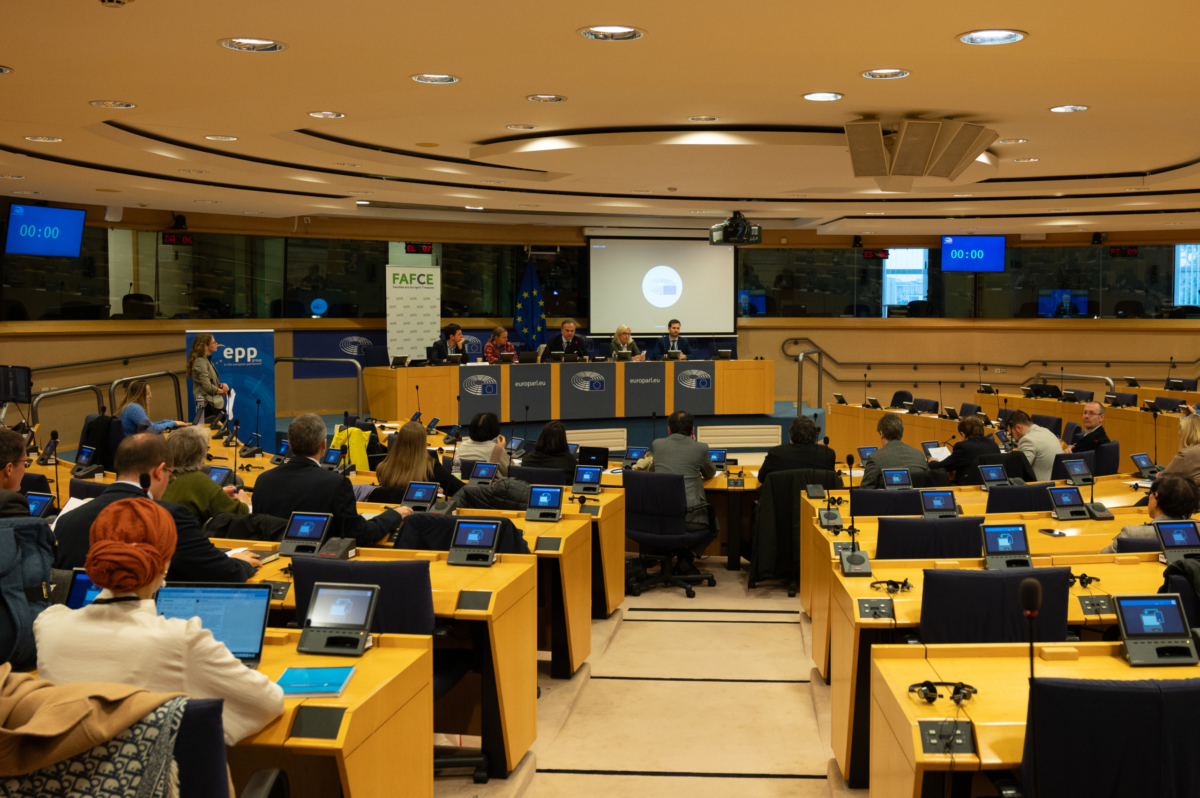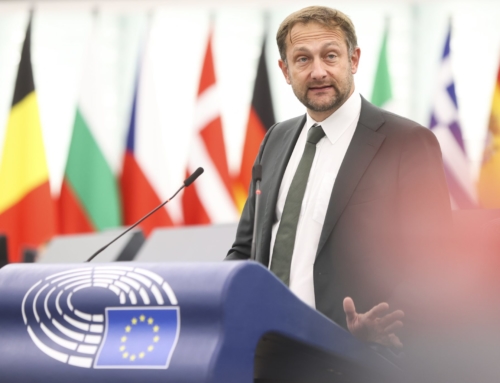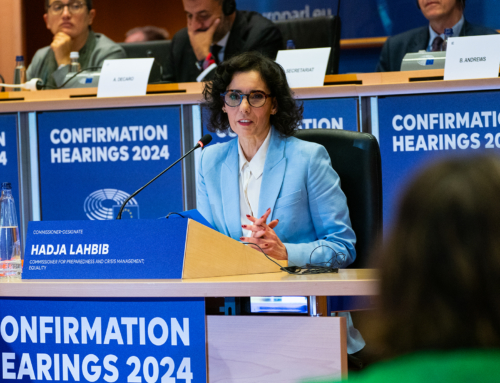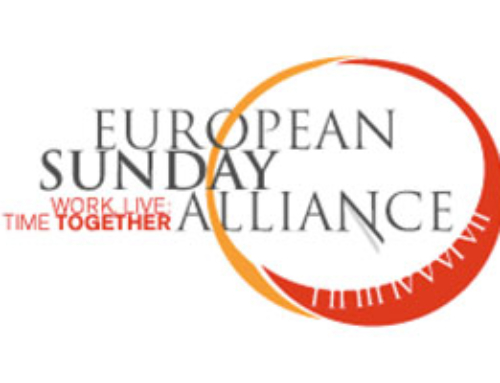Brussels, 15th November 2024
The Federation of Catholic Family Associations in Europe (FAFCE) and The Commission of the Bishops’ Conferences of the European Union (COMECE) co-organised a conference at the European Parliament on Tuesday 5th November. Hosted by MEP Lukas Mandl from the EPP, the conference was entitled Human Ecology – Intergenerational Solidarity. Attended by over 30 representatives from FAFCE members, guests, and individuals working in the EU institutions, the conference featured a diverse panel of expert speakers that made the connection between ecology and demography.
Moderated by FAFCE President Vincenzo Bassi, the panel included:
Flaminia Vola, Dicastery for Promoting Integral Human Development (Holy See)
Monica Pisani, Policy Officer at DG CLIMA (European Commission)
Attila Beneda, Deputy State Secretary for Family Affairs, Ministry of Culture and Innovation of Hungary
Béla Kuslits, Senior Ecology Officer at JESC (Jesuit European Social Centre)
Johannes Moravitz, Policy Adviser on Ecology, Energy & Agriculture at COMECE (Commission of the Bishops’ Conferences of the European Union)
Regina Maroncelli, President of ELFAC (European Large Families Confederation)
In his introductory speech, MEP Lukas Mandl said “it is appropriate that this event is held in the house of democracy”. FAFCE President Vincenzo Bassi then commenced the panel with some opening remarks, asserting that “family policies should be considered an investment; not as a social cost as they currently are”, echoing the language of the FAFCE Autumn Board Resolution. “Our goal is to develop family associations, without them we cannot solve this issue”.
The conference was joined online by Attila Beneda, Deputy State Secretary for Family Affairs at the Ministry of Culture and Innovation for the government of Hungary. He added the context that “our societies face challenges that go beyond economic growth but touch the foundation of our families and communities”, before going on to detail the Hungarian government’s efforts in promoting family friendly policies and tackling the demographic crisis.
Flaminia Vola from the Dicastery for Promoting Integral Human Development at the Holy See took the floor, providing a Catholic social teaching and theological background to the necessity of connecting ecology with demography. “We talk about ecology, but are we able to identify the inherent human conditions of sustainability?”. She gave reflections from several pontiffs on human ecology included Pope Francis, Pope Saint John Paul II, and Benedict XVI. Quoting Pope Francis, she said, there is “no ecology without an integral ecology.”
COMECE Policy Adviser, Johannes Moravitz, raised the need for creative solutions to the climate emergency. “One such solution could be promoting family economies and multi-generational family homes, which generate significantly lower emissions. These homes could also address rising societal issues such as loneliness and mental health challenges while helping us rediscover the beauty of family life”, he asserted.
Monica Pisani, Policy Officer at DG CLIMA in the European Commission, said that “climate action is more necessary than ever”, reflecting on recent natural disasters such as the floods in Valencia. Adding, “we are facing a crisis of disconnection, despite being interconnected”. She emphasised the need for a people-centred approach in confronting ecological and demographic challenges. She stressed the need for hope, saying that “your organisations have the important role to play to bring back hope to the people in these times of crises.”
Bela Kuslits, Senior Ecology Officer at the Jesuit European Social Centre, gave an overview of the broad coalition that comprises the Future Generations campaign and the “moral responsibility to those not yet born”. Focusing particularly on the prospective Commissioner for Intergenerational Fairness, Glenn Micallef, Kuslits was optimistic about the communication of the Future Generations initiative which counts climate groups, faith-inspired organisations, among many others as partners.
Regina Maroncelli, President of the European Large Families Confederation, contributed a speech which was read out by Maria Waszkiewicz, Project Manager at FAFCE. She spoke about the discrimination that large families face in society, despite their contribution to ecology, intergenerational solidarity, and their proportionally lower carbon footprint.
“It is time to show the family, not as the sick of society, but the carers of the sicknesses in society”. FAFCE President, Vincenzo Bassi, summed up by encouraging that the family is centred in the Green Deal transition.
FAFCE would like to thank COMECE, MEP Lukas Mandl, attendees, and everybody involved with the conference and the Board Meeting.







